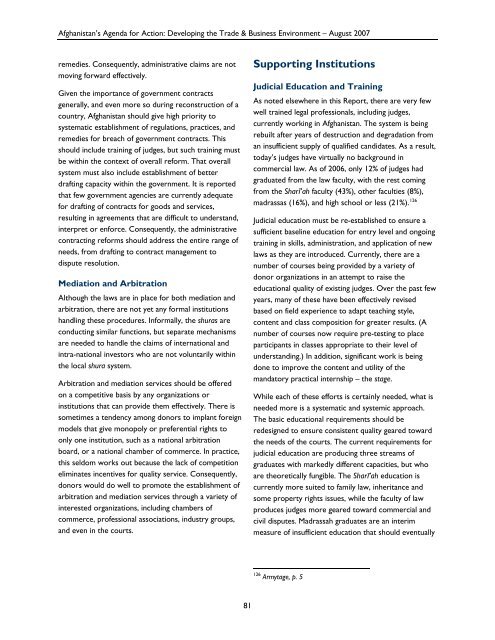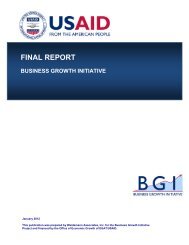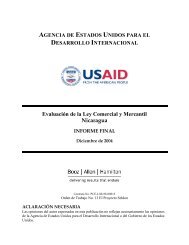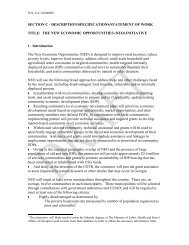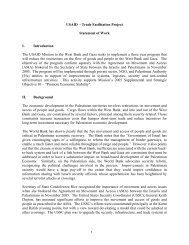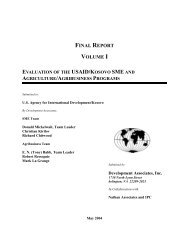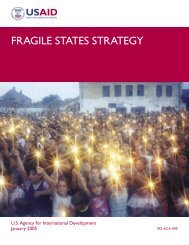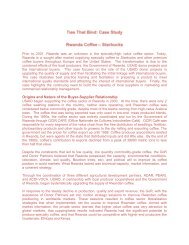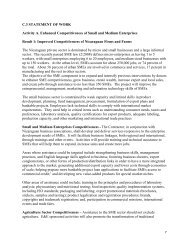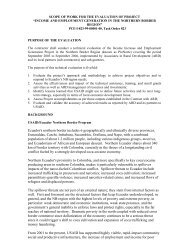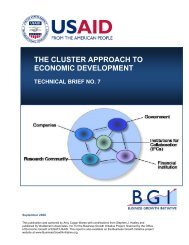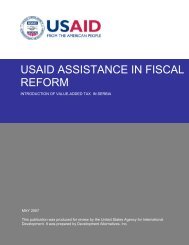Afghanistan's Agenda for Action - Economic Growth - usaid
Afghanistan's Agenda for Action - Economic Growth - usaid
Afghanistan's Agenda for Action - Economic Growth - usaid
Create successful ePaper yourself
Turn your PDF publications into a flip-book with our unique Google optimized e-Paper software.
Afghanistan’s <strong>Agenda</strong> <strong>for</strong> <strong>Action</strong>: Developing the Trade & Business Environment – August 2007remedies. Consequently, administrative claims are notmoving <strong>for</strong>ward effectively.Given the importance of government contractsgenerally, and even more so during reconstruction of acountry, Afghanistan should give high priority tosystematic establishment of regulations, practices, andremedies <strong>for</strong> breach of government contracts. Thisshould include training of judges, but such training mustbe within the context of overall re<strong>for</strong>m. That overallsystem must also include establishment of betterdrafting capacity within the government. It is reportedthat few government agencies are currently adequate<strong>for</strong> drafting of contracts <strong>for</strong> goods and services,resulting in agreements that are difficult to understand,interpret or en<strong>for</strong>ce. Consequently, the administrativecontracting re<strong>for</strong>ms should address the entire range ofneeds, from drafting to contract management todispute resolution.Mediation and ArbitrationAlthough the laws are in place <strong>for</strong> both mediation andarbitration, there are not yet any <strong>for</strong>mal institutionshandling these procedures. In<strong>for</strong>mally, the shuras areconducting similar functions, but separate mechanismsare needed to handle the claims of international andintra-national investors who are not voluntarily withinthe local shura system.Arbitration and mediation services should be offeredon a competitive basis by any organizations orinstitutions that can provide them effectively. There issometimes a tendency among donors to implant <strong>for</strong>eignmodels that give monopoly or preferential rights toonly one institution, such as a national arbitrationboard, or a national chamber of commerce. In practice,this seldom works out because the lack of competitioneliminates incentives <strong>for</strong> quality service. Consequently,donors would do well to promote the establishment ofarbitration and mediation services through a variety ofinterested organizations, including chambers ofcommerce, professional associations, industry groups,and even in the courts.Supporting InstitutionsJudicial Education and TrainingAs noted elsewhere in this Report, there are very fewwell trained legal professionals, including judges,currently working in Afghanistan. The system is beingrebuilt after years of destruction and degradation froman insufficient supply of qualified candidates. As a result,today’s judges have virtually no background incommercial law. As of 2006, only 12% of judges hadgraduated from the law faculty, with the rest comingfrom the Sharī’ah faculty (43%), other faculties (8%),madrassas (16%), and high school or less (21%). 126Judicial education must be re-established to ensure asufficient baseline education <strong>for</strong> entry level and ongoingtraining in skills, administration, and application of newlaws as they are introduced. Currently, there are anumber of courses being provided by a variety ofdonor organizations in an attempt to raise theeducational quality of existing judges. Over the past fewyears, many of these have been effectively revisedbased on field experience to adapt teaching style,content and class composition <strong>for</strong> greater results. (Anumber of courses now require pre-testing to placeparticipants in classes appropriate to their level ofunderstanding.) In addition, significant work is beingdone to improve the content and utility of themandatory practical internship – the stage.While each of these ef<strong>for</strong>ts is certainly needed, what isneeded more is a systematic and systemic approach.The basic educational requirements should beredesigned to ensure consistent quality geared towardthe needs of the courts. The current requirements <strong>for</strong>judicial education are producing three streams ofgraduates with markedly different capacities, but whoare theoretically fungible. The Sharī’ah education iscurrently more suited to family law, inheritance andsome property rights issues, while the faculty of lawproduces judges more geared toward commercial andcivil disputes. Madrassah graduates are an interimmeasure of insufficient education that should eventually126 Armytage, p. 581


